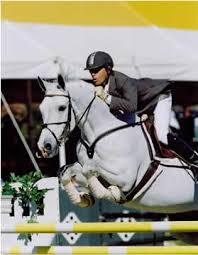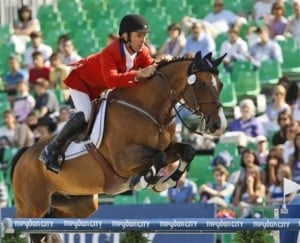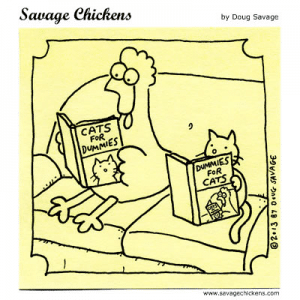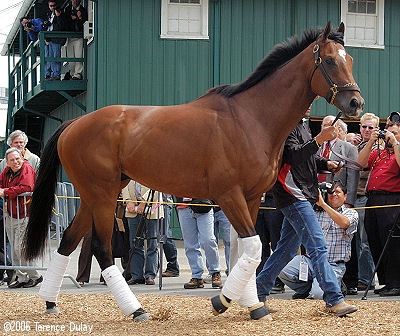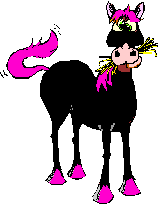Richard Spooner has been a client for nearly two decades, and has been one of America’s best known and most successful show jumping riders. For about 20 years, I’ve been lucky enough to work with him on horses from low level hunters to his great horses Robinson (the first American horse to win $1 million) and Cristallo (who, for a time in 2012, was rated the number one jumping horse in the world).
I was up at Richard’s barn the other day, and had the chance to ask him a few questions about his thoughts about performance horses, and the performance horse world. I hope you enjoy our conversation, and maybe even use it to lead your own explorations of what it means to care for a performance horse.
DR: You’ve been riding for how long?
RS: I’ve been riding for 34 years – since I was 10 years old. I started just because I liked hanging out with horses and my Mom had an English saddle, so I ended up riding hunters.
DR: Your Mom was a trainer, too, right?
RS: My Mom was a trainer. She liked horses when she was young, and for years didn’t do anything with them, but when I started liking horses, it sort of rekindled her interest.
DR: Did you grow up starting and developing horses, or did you have horses bought for you, and ride with trainers?
RS: At first, I rented and borrowed horses, and then my parents bought me my first horse, a Quarterhorse named “Rusty.” We actually showed him together – his show name was “Two Timer” because he worked for both my Mom and me. I went through a lot of different trainers until I was 20, and by the time I was 23 or 24, I was out on my own.
DR: So, after 20 years, what are the major changes between the professionals you grew up with and the professionals now?
RS: I would say that there’s a dramatic change. As the sport grows and expands, the general level of care and education has expanded. The modern sport has brought a higher level of pressure, as well as a higher level of interest.
DR: What would you say is the difference in care between now, and when you first started as a professional?
RS: When I first started, the sport was not as popular as it is today. Care a bit more of general health care for the horses. Now, we have what is coined, “High Performance Care,” which is dramatically different.
DR: Different how? I mean, I’ve seen a lot of changes – MRI, shockwave, “alternative” medicine and ultrasound are just a few of the things that have come along – but would you say that there has been a commensurate level in the outcomes for horses with all of this new care?
RS: Ultimately, no, I think all of the new care may have the opposite effect. If you look at the horse’s care as long-term, that is, long-term in their life expectancy and general health, I don’t really know if we’ve taken leaps forward or leaps backward. In some cases, “high performance care” has become a detriment to equine health.
DR: When you say “detrimental,” do you think horses are getting injured more often, or do you think it’s just making it more expensive to take care of horses, and you’re not getting anything from it.
RS: I think that it’s creating an environment where, as professionals and caretakers of horses, we put their performance ahead of their long-term health. We can get caught in a spiral. Once you begin masking a horse’s soundness issues, you can put the horse in a position where he’s using ligaments, tendons, and joints before they are actually healthy again.
DR: When you go around to competitions around the world, are conversations about, “What are we doing to the horses,” had in the back aisles of the barn?” Do others share your concerns?
RS: I don’t think the concern is mine alone. I think most professionals have the same concerns. There’s a balancing act between the competitive career of the horse and rider with the health of the horse. Even though we don’t have a Hippocratic Oath, I think that we have an obligation to these animals, and that should always be at the forefront of discussions with anyone who loves the animals and the sport.
 DR: One of the things that I think I’ve observed over the course of my career is that with all of the advances that we’ve made in treating horses, they aren’t running any faster, they aren’t jumping any higher, and they aren’t lasting any longer in the show rings. Am I wrong?
DR: One of the things that I think I’ve observed over the course of my career is that with all of the advances that we’ve made in treating horses, they aren’t running any faster, they aren’t jumping any higher, and they aren’t lasting any longer in the show rings. Am I wrong?
RS: No, you’re not wrong. The only thing that may have changed is that in a horse’s career, there may be fewer six and 12 month hiatuses, and more three month, or 6 week, or 2 week hiatuses. Because the environment has changed, because you have $500,000 classes every other week, there’s an extraordinary amount of pressure on everyone involved with the team – the owners, the riders, and the trainers – to get the horse in the ring and to get it where you have a shot at that purse. And I think that’s put a lot of pressure on veterinary medicine to have new solutions, dramatic solutions, and quick fixes to old problems.
DR: I think that’s the case, too. Veterinarians may feel like that have to be sports medicine “specialists,” or they have to inject this, or shockwave that, so that they can have something to offer, because the idea that a horse would really benefit from a few months off isn’t sexy or appealing, and it takes a horse out of competition. The pressure to compete sure adds a lot of non-horse-related considerations to the treatment of horses.
DR: How about for regular maintenance of horses? I mean, I know from all of the years of working with you that I never go in an inject a horse’s joints unless there is a clear indication of a problem. Do you do any other sorts of routine veterinary or nutritional or other interventions? I mean, I don’t want you to reveal any secrets, of course… but, I know you give them hay, for example, and they have water, but is there anything else “special” that you do for them?
RS: Well, they really do need the hay and water, and everything else is basically fluff. It’s funny, because, when you talk about having a secret, I would say that my secret is having none. The more things that you do to horses and people and to yourself, the more things that you put into a product, the harder it is to control the product’s quality. I try to keep it simple, so when things go wrong, I have less places to look for problems; I have fewer stones to turn. I have fewer variables. The problem with too many variables in sport is that with lots of variables, it makes it hard to identify the problem, and it makes it harder to fix the problem. For me, it’s important that I try to get rid of crutches, and get rid of gimmicks, and resist the temptation to try to push when I should step back. Money is the root of a lot of bad decisions.
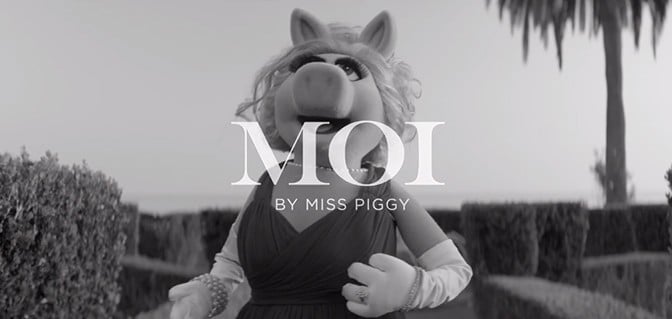 DR: One of the things that makes you unique as a rider in my experience is that you’re one of two people that I can immediately think of in my career that, when a horse isn’t jumping well, or isn’t responding the way that you think he should, your first thought is that you’re doing something wrong. My observation of most people is that when faced with similar circumstances, they think that there is something wrong with the horse. So, understanding that, there have probably been many times in the 20 or so years that we’ve worked together where you thought something might be wrong with the horse, but you never called me. And that’s fine, but the question is, in your off-the-cuff estimate, how many times do you think that when you encounter a horse that’s not performing up to your expectations, the problem was something in tack or training or riding, and how many times do you think that there really ended up being something wrong with the horse?
DR: One of the things that makes you unique as a rider in my experience is that you’re one of two people that I can immediately think of in my career that, when a horse isn’t jumping well, or isn’t responding the way that you think he should, your first thought is that you’re doing something wrong. My observation of most people is that when faced with similar circumstances, they think that there is something wrong with the horse. So, understanding that, there have probably been many times in the 20 or so years that we’ve worked together where you thought something might be wrong with the horse, but you never called me. And that’s fine, but the question is, in your off-the-cuff estimate, how many times do you think that when you encounter a horse that’s not performing up to your expectations, the problem was something in tack or training or riding, and how many times do you think that there really ended up being something wrong with the horse?
RS: I would say 50:50. Maybe more towards not being the horse. I always try to do my own evaluation of the horse before I call you, for multiple reasons. First, I don’t want to spend that money. Nothing personal.
DR: No offense taken (smiling)!
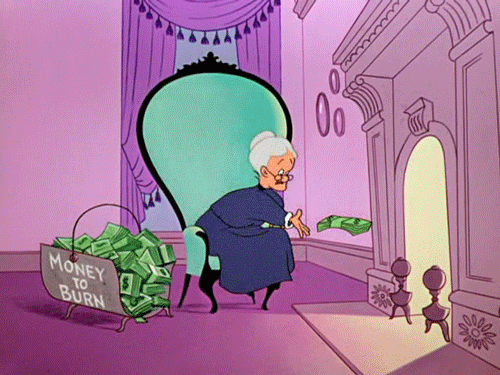 RS: Second, and what goes along with that, is that I’ve always believed that my clients’ money should be treated the way that I would treat my money. I don’t want to give my prize money away. When a horse earns prize money, I want that money to go towards the horse, and towards his expenses, and towards his future. If you’re spending $3,000 per month on “high performance” veterinary care, that’s a lot of pressure to win to make that up, when you add that in to all of the other expenses.
RS: Second, and what goes along with that, is that I’ve always believed that my clients’ money should be treated the way that I would treat my money. I don’t want to give my prize money away. When a horse earns prize money, I want that money to go towards the horse, and towards his expenses, and towards his future. If you’re spending $3,000 per month on “high performance” veterinary care, that’s a lot of pressure to win to make that up, when you add that in to all of the other expenses.
The other reason is that I don’t want to look ignorant. When you come out, I want to have some information for you. I want to feel as though I’ve already tried the basic horsemanship phases of making a horse feel better before you get out here, so that we can actually have a conversation about the horse, and that I can give you information about a horse that is going to be useful. That takes time. You can’t just wake up and say, “I’m going to call the vet.” You can’t have a hands-off approach. When someone asks me what might be wrong, I don’t want to say, “Ask the vet.” When you tell me that something is wrong with a horse, I don’t believe you until you convince me what the problem is. You can’t fix a problem unless you know what it is. And so, to just say, “Let’s inject this,” or “Let’s try that,” or, “Let’s shockwave this,” or, “Let’s ultrasound that,” or who knows what, just isn’t right. If there’s something wrong with a horse’s joint, an injection is not likely to fix the problem. It may temporarily control things, but I want to know what the problem is. Is there a problem with the farrier? With the saddle? Is there something that needs to be changed with the horse’s exercise regimen, with his feed, or with the way I ride, or with the bit? You fix problems by getting to the root of them, rather than just covering it up with a bunch or really expensive dirt. I want to be able to fix a horse’s problem. If I can fix one problem, then the whole horse feels better.
DR: For me, that’s one of the best things about working with you. You can say, “Dave, is there something wrong with this horse?” and I can say, “You know, Richard, I don’t think that there’s anything wrong with this horse,” and you accept that answer. It’s nice to have a working relationship in which I don’t always feel that I have to do something. Certainly, if something needs to be done we do it, but I wish the pressures weren’t as they are for many other horses.
RS: Ironically, I think that the pressures of short-term fixes ultimately create long-term problems that can’t be fixed.
DR: I couldn’t agree with you more. Thanks!



